Table of content
In the realm of online stores, every click matters and customer engagement is the currency of success. The battle: mobile app vs website rages on, so it’s natural that brands are confused when picking their marketing strategies. Going all in and pursuing every channel seems like the right choice. However, some wonder if the results can be as satisfying without advertising on all platforms.
This article presents our key insights on current trends in e-commerce regarding the usage of traditional websites and mobile apps. It addresses a few dilemmas, trying to answer the burning question: “Should online shopping brands bet on mobile marketing exclusively?”
If you want to explore this topic in the video form, watch the session below:
Embracing the Power of Digital Marketing in E-commerce
The impact of e-commerce trends on business strategies and customer engagement, especially in mobile apps, should be a pivotal area of focus for brands that want to thrive in 2024 and beyond. Staying ahead of the competition is crucial in this dynamically evolving landscape.
We’ve decided to take a closer look at the data and determine what truly is the successful approach to mobile apps in e-commerce. Is there a one-size-fits-all solution? Is an online presence based entirely on a classic website always a bad idea? Let’s find out.
Facts and Trends: Navigating App E-commerce
In 2015, Google’s agenda to prioritize mobile-friendly websites revolutionized the way users browse the internet and shop for goods. This shift led to a peak in mobile traffic – in February 2023, 60% of worldwide online activities happened on mobile devices.
While the growth continues, it’s essential to note that the division between mobile and desktop traffic remains significant. Asia leads when it comes to mobile adoption, while Europe was in the desktop phase for a much longer time. These statistics show how the evolution of digital consumer habits can vary depending on region and socio-cultural factors.
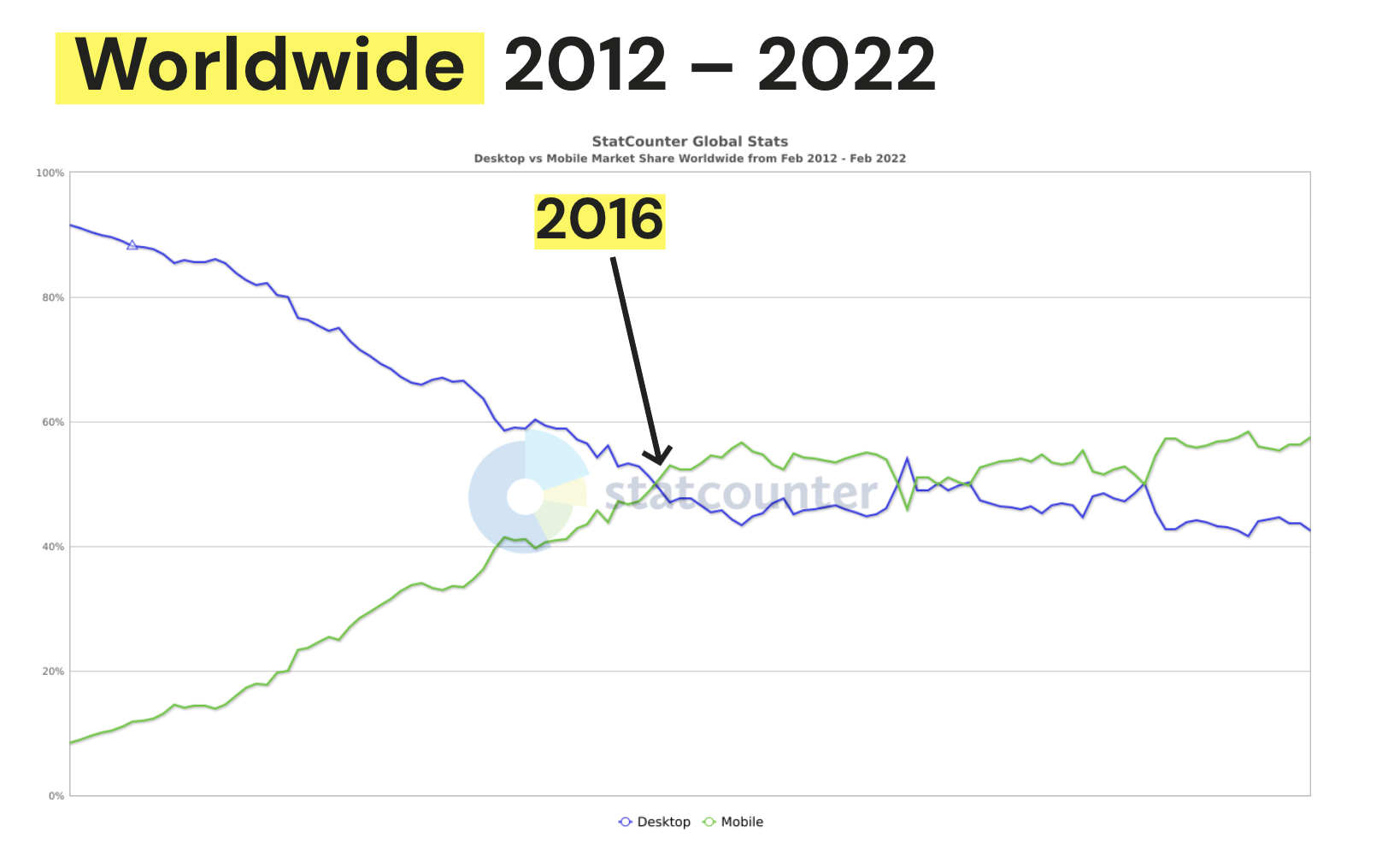
Mobile Web vs. Mobile Apps
Users spend 90% of their time on mobile apps, not mobile websites. They usually have several daily-used apps and approximately 80 installed apps on their smartphones and tablets. Notably, the time spent on shopping apps increased by 100% from 2018 to 2021, outpacing the growth of overall app usage. The usage of e-commerce apps grows 3 times faster than all other apps combined.
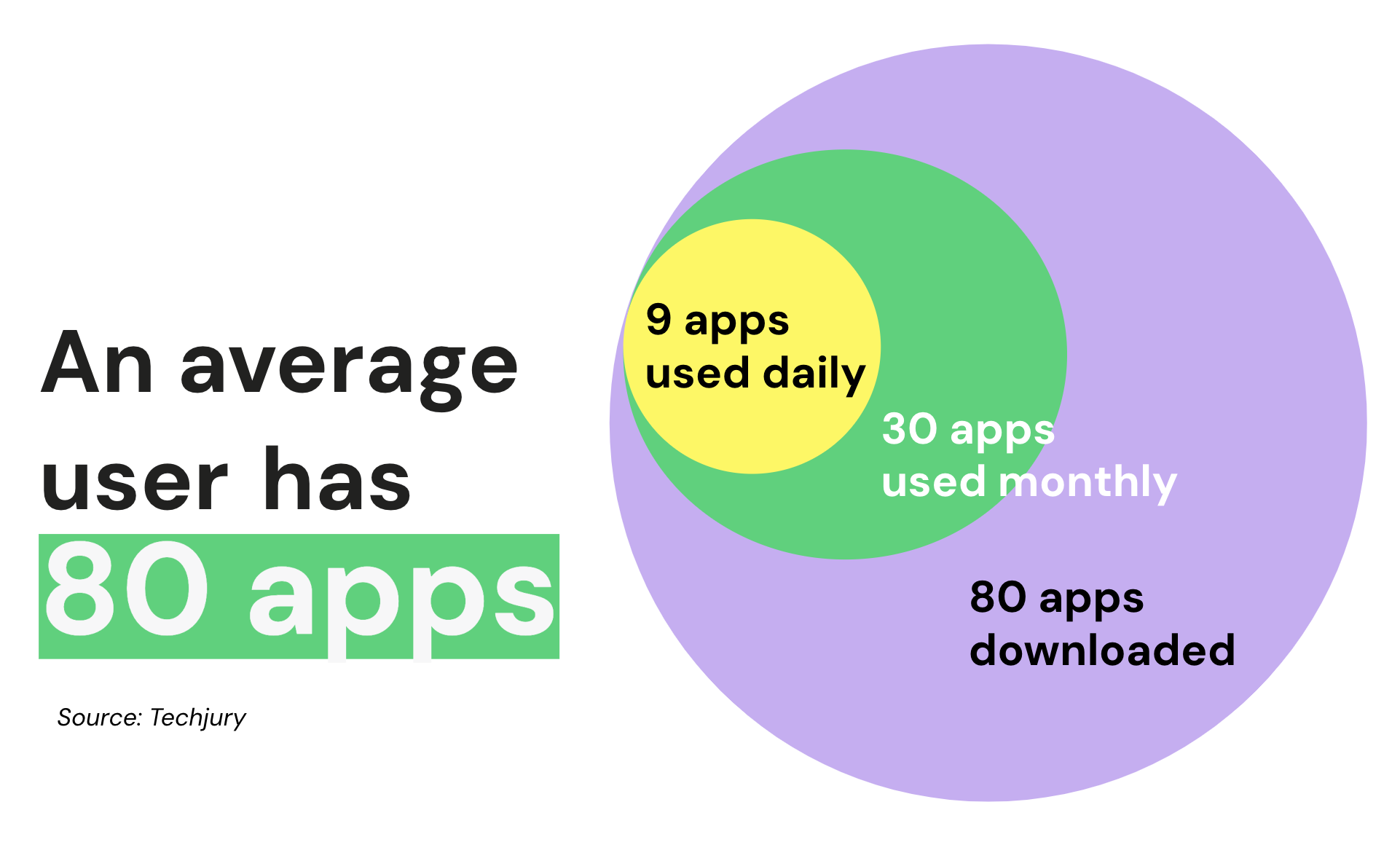
Dominance of Mobile in E-commerce
Research shows that in 2022, a remarkable 67% of e-commerce sales were generated through mobile devices, both on websites and apps. The time spent in such apps grew significantly, further emphasizing the crucial impact of the mobile-first approach.
Shopping Apps in Europe and Globally
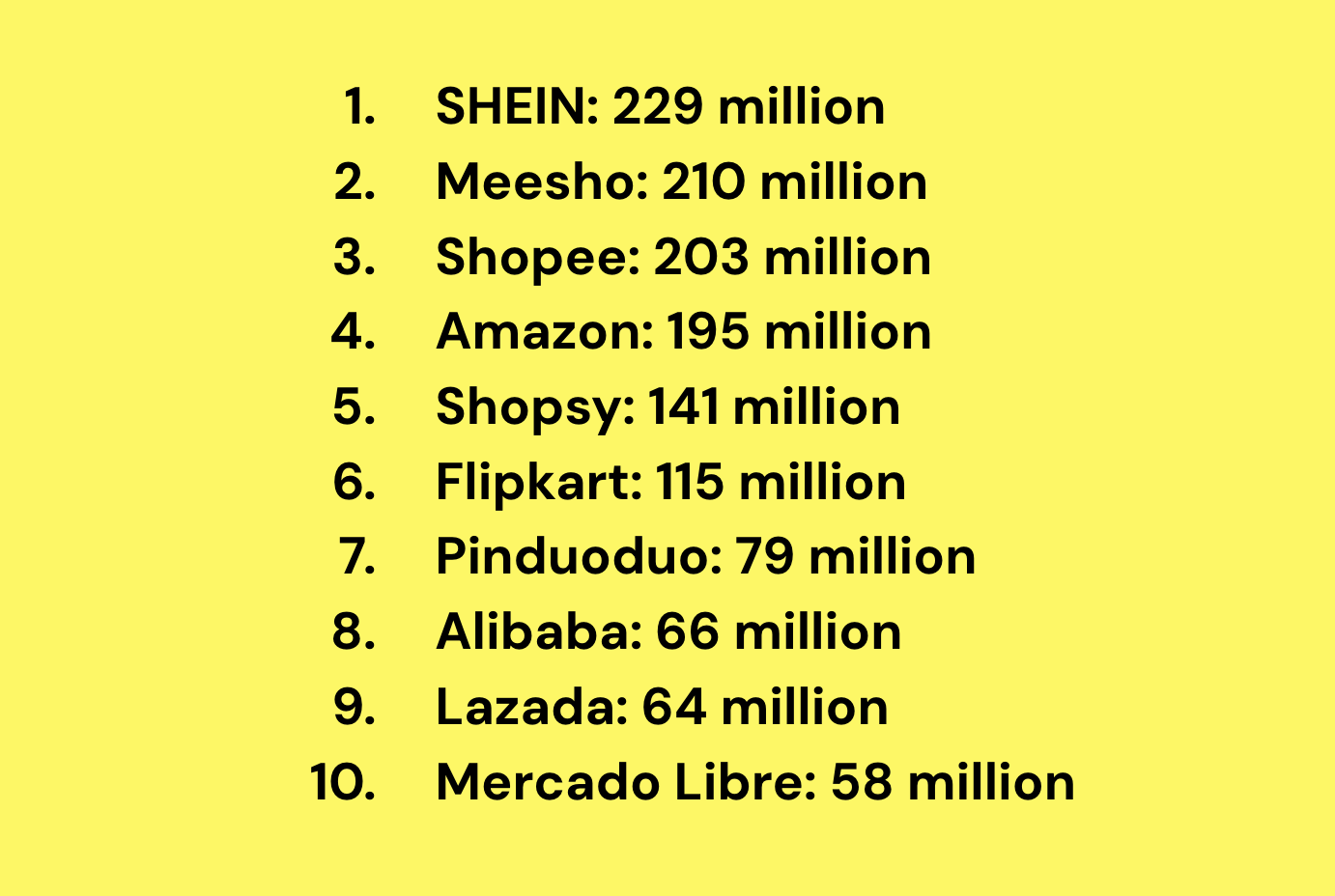
In 2021, 47% of European stores had a customer engagement mobile app. The bigger the organization, the more likely it would invest in such software, which is unsurprising. Among the most popular apps worldwide, Shein, Shopee, Amazon, and Alibaba were ranked in the top 10, proving that marketplaces are users’ favorite when it comes to online shopping.
Key Metrics: Unraveling the Website vs. App Dilemma
The analysis of the current state of the market and consumer behaviors unlocks a better understanding of inbound marketing for e-commerce in today’s highly digitized, mobile-centric era.
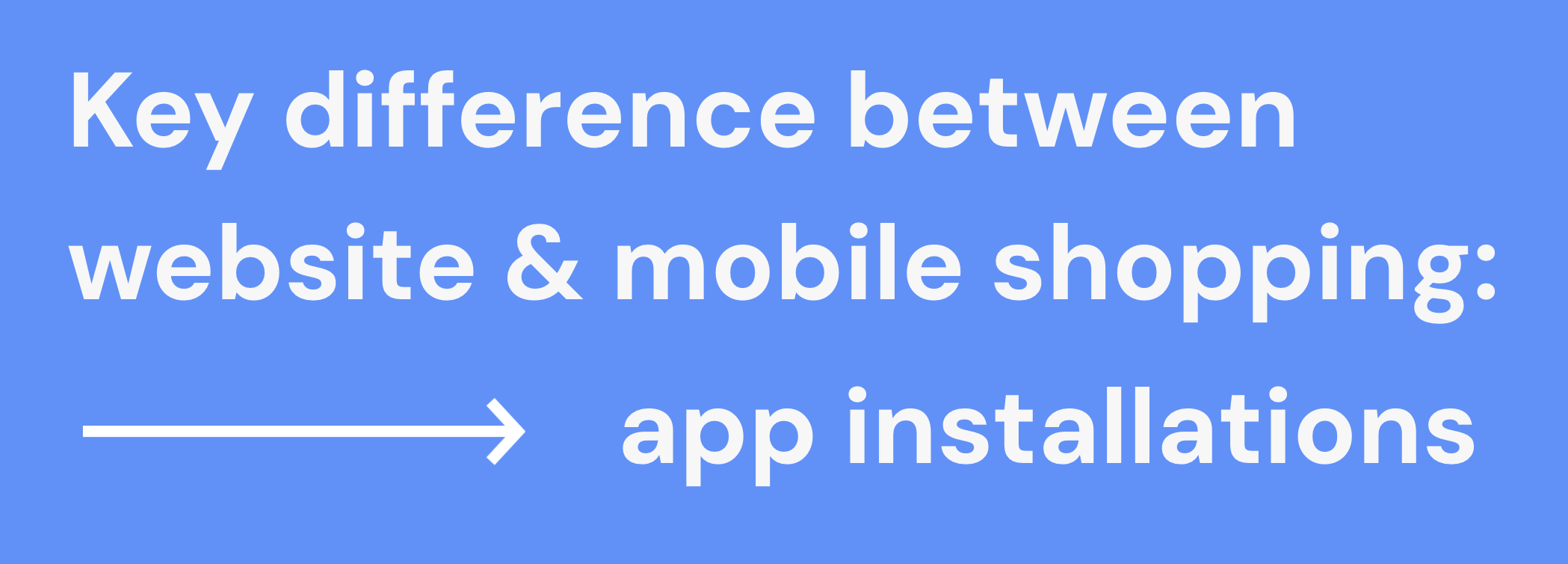
E-commerce Marketing Results
Several numbers can be measured to find out which channel is more successful. In the fight between mobile websites and applications, the metrics were quite interesting:
- Conversion rates: Websites typically exhibit lower conversion rates, while mobile apps demonstrate higher conversions. However, the process of app installation introduces an additional layer of complexity.
- Average order value: We assumed this metric as inconclusive, because factors such as product pricing and customer demographics play a vital role, making it challenging to draw a definitive verdict.
- Customer acquisition costs: This variable showcased a significant advantage of websites. The cost-effectiveness of mobile pages comes mostly from a wider number of acquisition channels and the long-term benefits of SEO.
- Customer lifetime value: Here, the apps triumphed. Thanks to a multitude of customer engagement options, personalization features, and easy access to loyalty programs, mobile software proves its long-term profitability.
App vs. Website – Pros and Cons
We’ve compared the app vs. website approach to determine what are their advantages and drawbacks.
| Pros | Cons | |
| Website e-commerce | – Cheaper to develop and faster time-to-market – Cost-effective, easy maintenance – Simple, budget-friendly analysis and optimization | – Lower brand impact – Less satisfying user experience – Harder to take care of the middle and bottom of the sales funnel to build loyalty |
| App e-commerce | An app is the brand’s owned marketing channel – More features to enhance user experience (camera, geolocation, biometrics, etc.) – More options to address the middle and bottom of the sales funnel | – The development process is slow and resource-consuming – Maintenance requires more manpower and money – Hard, costly analysis and optimization |
Choosing the Right Approach: Website, Mobile App, or Both?
It’s impossible to say there’s one approach that wins every time. We can see how each option can provide certain benefits to companies, depending on their business objectives, current online presence, and relations with customers. Let’s take a closer look at the tech first.
Native Apps vs. Progressive Web Apps
When considering app development for e-commerce purposes, two primary technologies come into play:
- Native apps
- Progressive web apps (PWAs)
Native, custom apps dedicated to specific devices (Android and iOS) offer superior user experiences and access to device features but come with higher development costs. They are also better in terms of security measures. However, their post-maintenance support is more demanding.
Progressive web apps are web applications that deliver native app-like experiences on various devices. They provide quicker market entry and cost-effectiveness but have limitations in accessing certain device functionalities.
This can be challenging when the brand’s go-to-market strategy involves a high level of user engagement. PWAs security can also be more demanding. On the other hand, they are indexed by Google, which helps with positioning.
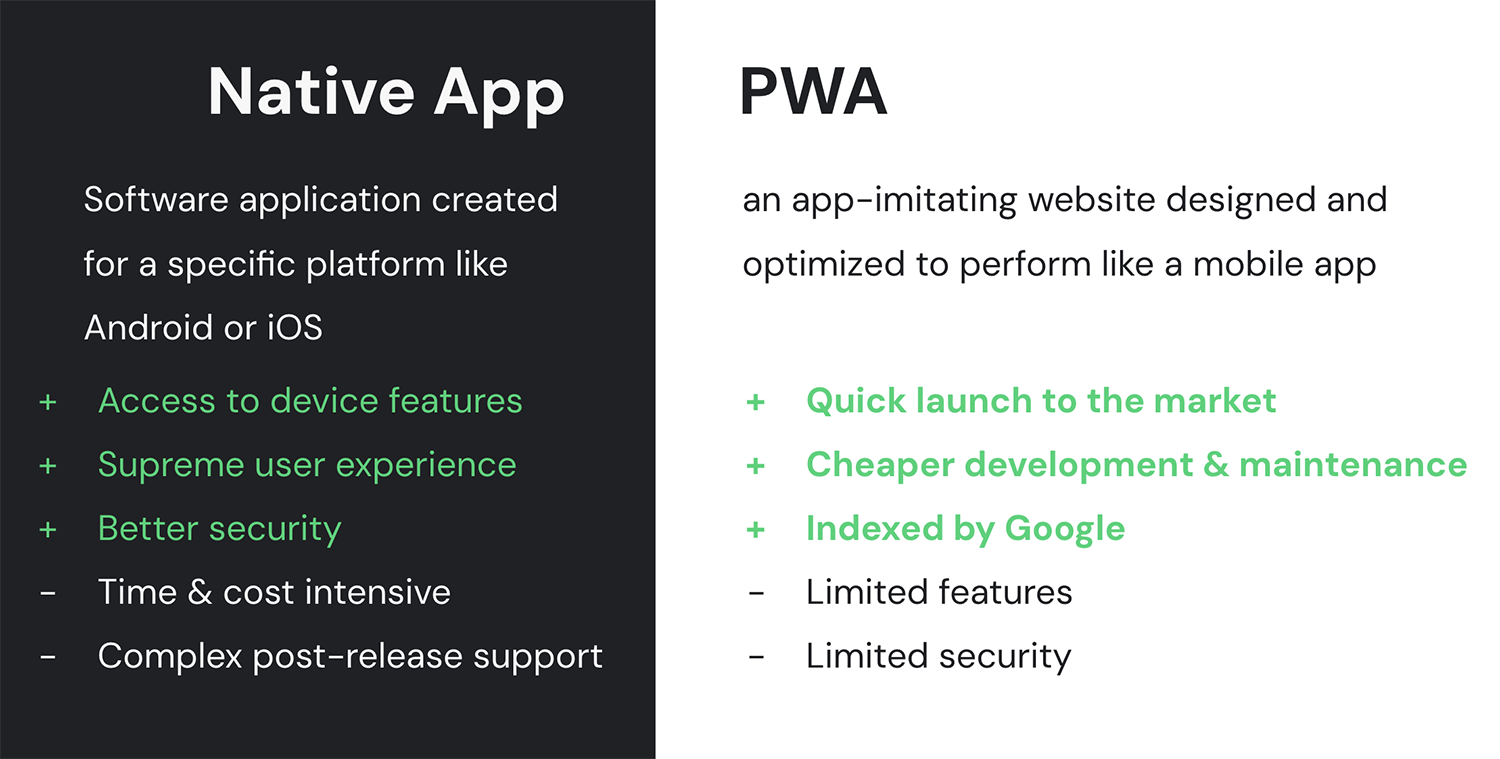
Crafting a Perfect E-commerce Marketing Strategy
Ultimately, the decision to focus on a website, a mobile app, or both depends on various factors including business goals, target audience, and available resources.
Examples from leading e-commerce players demonstrate diverse approaches, highlighting the complexity of this decision-making process. We suggest following the strategy that matches specific business needs the most.
There’s no one-size-fits-all approach
Understanding what responsive websites and mobile apps have to offer for e-commerce businesses is imperative to crafting effective marketing plans. As a marketing agency, we always consider individual expectations and pay attention to nuances that distinguish our partners from their market competitors. That’s why we don’t recommend one, universal approach.
We believe that as the e-commerce industry continues to evolve, embracing innovative strategies and leveraging data-driven insights will be the cornerstone of success. By staying informed and adaptable, businesses can thrive in their respective niches.



